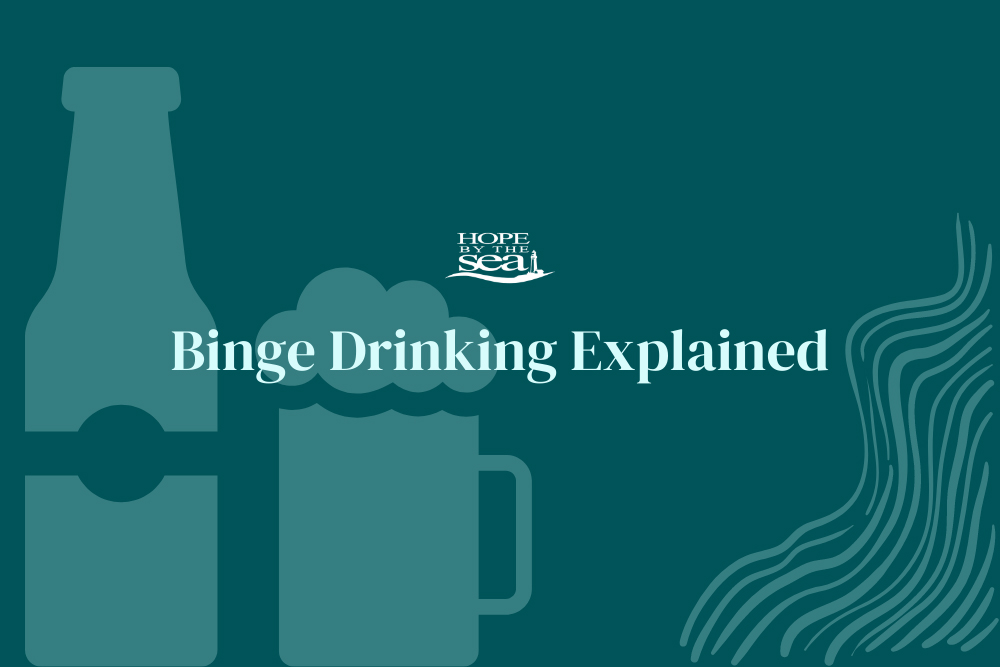Though most Americans are aware of the scope of the opioid epidemic and how it has affected communities nationwide, fewer people realize that alcohol abuse is also a significant national health crisis.
Because it is legal, broadly available and carries far less social stigma than illicit drugs, it’s easy to forget that alcohol carries an equal potential for abuse and addiction as substances like opioids. Indeed, alcohol’s accessibility elevates the likelihood that people will misuse it in ways like binge drinking.
Binge Drinking Defined
Some people believe alcohol will help them relax, socialize and have a good time. Drinking a glass of wine with dinner or having a beer at a party are examples of moderate, responsible alcohol use. However, if “just one” routinely turns into two, three and more, you should understand the risks associated with binge drinking.
The Centers for Disease Control and Prevention’s definition of binge drinking is any incidence of alcohol use that elevates your blood alcohol concentration to 0.08 grams per deciliter or higher. Men typically reach this threshold after consuming five drinks within two hours, while women do so by having four alcoholic beverages within the same period.
Understanding the Dangers of Binge Drinking
Excessive drinking can adversely affect your life in many ways, especially if alcohol is your primary way to cope with stress, anxiety or other negative emotions.
- Irresponsible decisions: You might make reckless choices when you’re intoxicated, like driving under the influence.
- Violent behavior: Binge drinking can cause you to become irrationally angry or belligerent. You may act on your worst impulses and start arguments or fights.
- Economic costs: According to CDC estimates, binge drinking costs the U.S. billions of dollars annually in terms of lost work productivity and expenses related to health care, car accidents and legal fees.
- Blackouts: Drinking excessively can cause a form of full or partial short-term memory loss. Blackouts are especially dangerous because you may do or say things you can’t remember later, leaving you confused and trying to figure out what happened.
- Injuries and accidents: A high BAC, alongside impaired coordination, can cause you to trip, fall or lose your balance more easily. Injuries and accidents you experience while blacked out can leave you with unexplained bumps, bruises and scrapes.
- Addiction: Binge drinking will eventually cause your tolerance to build, and you’ll need more alcohol to achieve your desired feeling. If you are physically and psychologically dependent on alcohol, trying to scale back or quit can lead to severe withdrawal symptoms like sweating, vomiting, hallucinations and anxiety.
Alcohol Addiction Recovery at Hope by the Sea
Hope by the Sea is a certified, family-owned California rehab center. We provide comprehensive substance abuse treatment for adults who want to stop drinking and discover how joyful a sober life can be. Our continuum of care begins with a medically supervised detox program that provides the foundation for the next phases of treatment by ensuring a comfortable, safe withdrawal from alcohol.
To learn more about breaking the cycle of addiction and renewing your life, please reach out to us today. Our compassionate admissions advisors are available 24/7 to take your confidential call.

